Do Cats Mourn Their Owners?
Plenty of anecdotal reports from cat owners who say their cats seemed to be grieving after the death of a family member. Cats are very attached to their owners and form strong bonds, so it’s not surprising that they would show signs of distress when separated from them.
Cats are relatively solitary creatures, so they don’t have the same social support systems as humans. When a cat loses its owner, it may become withdrawn and stop eating or playing. Some cats will even stop using the litter box. These behaviors are all signs of stress and grief in cats.
Whenever your cat is mourning, try to be patient and understanding. Allow your cat to grieve in his or her own way and in his or her own time. Provide extra love and attention.
Read Also:
How Do Cats Mourn Their Owners?
Cats are notorious for their aloofness, but don’t be fooled—they form strong bonds with their owners. So, what happens when a cat’s owner dies?
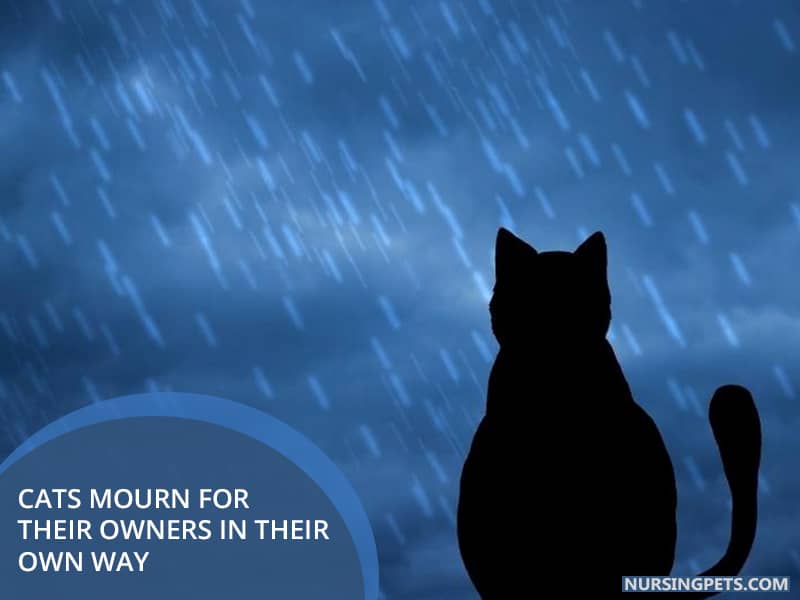
Cats mourn their owners in much the same way that humans do. They may become depressed and withdrawn, stop eating and grooming themselves, and have trouble sleeping. In extreme cases, some cats may even try to harm themselves.
When a cat is mourning the loss of an owner, it’s important to provide extra support and care. Spend more time petting and playing with your cat, and make sure to keep up with its routine as much as possible.
Why Do Cats Grieve When Their Owner Dies?
It’s a sad fact of life that our beloved cats outlive us. While it’s hard for us to say goodbye to them, it’s even harder for them to lose us. Cats are social creatures and form close bonds with their owners. When their owner dies, they may feel lost and confused.
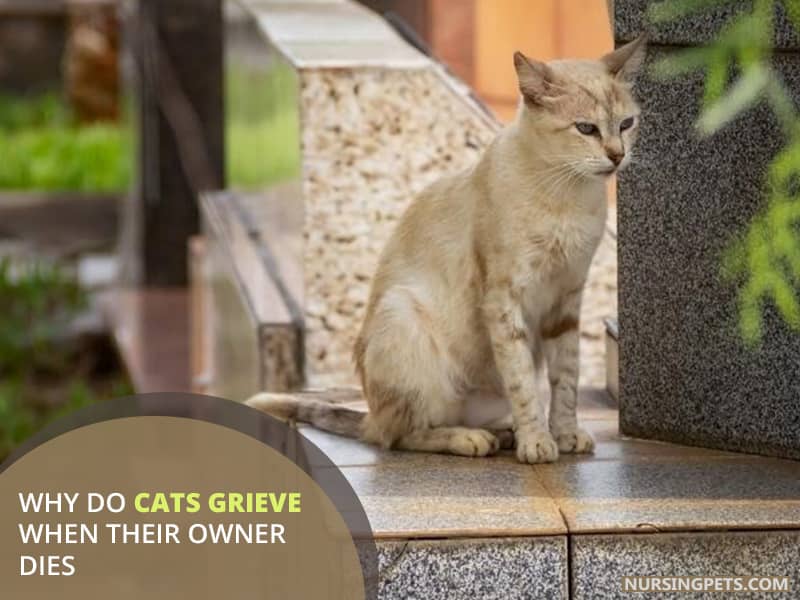
The grieving process can be difficult for both the cat and the owner’s family. It’s important to give your cat time to adjust and be patient.
Has There Been Any Research on Cat Mourning Behavior?
There has been some research on cat mourning, although it is still a relatively new area of study. One of the most notable studies was conducted by Dr. Elizabeth Loftus, who found that cats do indeed seem to grieve for their lost companions.
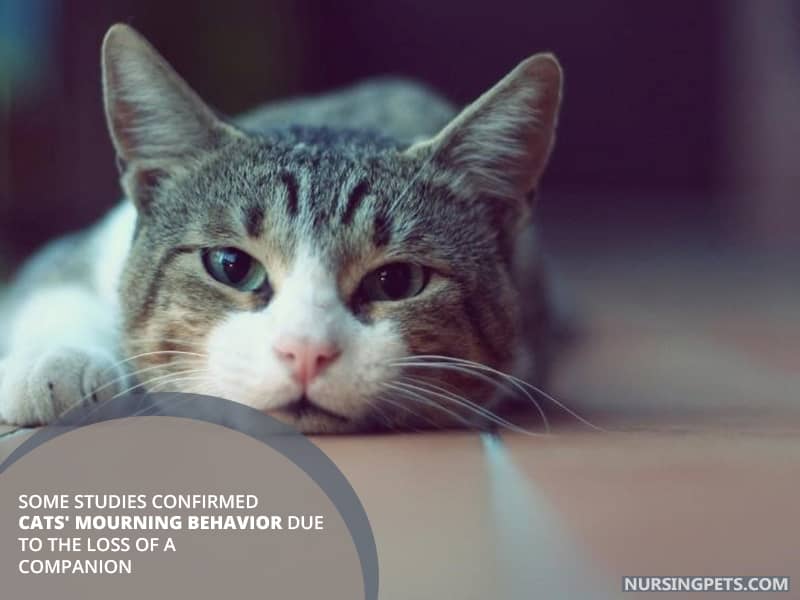
In her study, she found that cats showed signs of depression and withdrawal after the death of a fellow cat and that they would often search for their lost friend.
Additionally, cats in the study were more likely to form close bonds with other cats in the household after the loss of a companion, which suggests that they were seeking out social support during their time of grief.
How Can You Tell If A Cat Is Grieving?
It can be difficult to tell when a cat is grieving, as they do not express their emotions in the same way that we do. However, some signs may indicate that your cat is grieving:
Change in appetite: A grieving cat may lose their appetite or start eating more than usual.
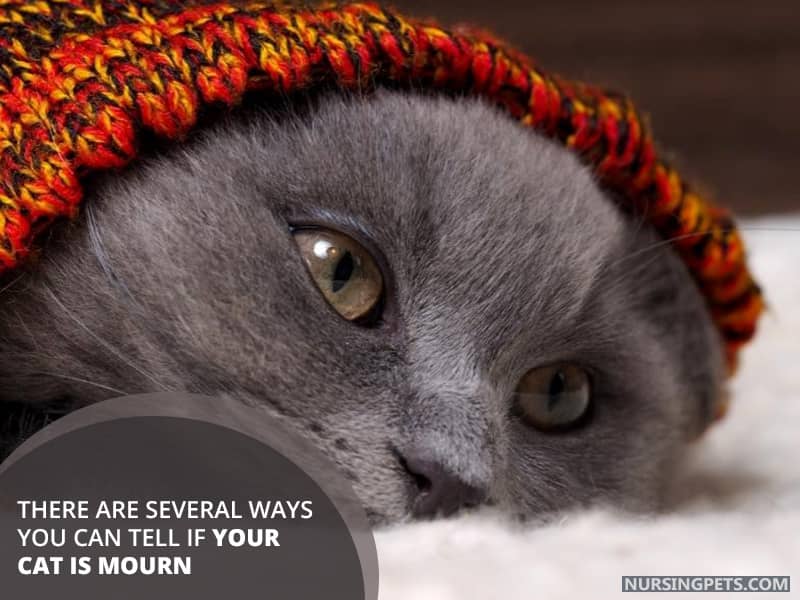
Change in sleep patterns: A cat may sleep more or less than usual when they are grieving.
Change in behavior: A grieving cat may become more or less active than usual and may seem more or less interested in its normal activities.
Physical signs: A cat may seem lethargic when they are grieving.
Whenever you notice any of these changes in a cat’s behavior, it may be an indication that they are grieving.
How Long Do Cats Mourn Their Owners?
It’s not uncommon for cats to grieve the loss of a human companion. The intensity of their mourning and the length of time they grieve can vary greatly from cat to cat.
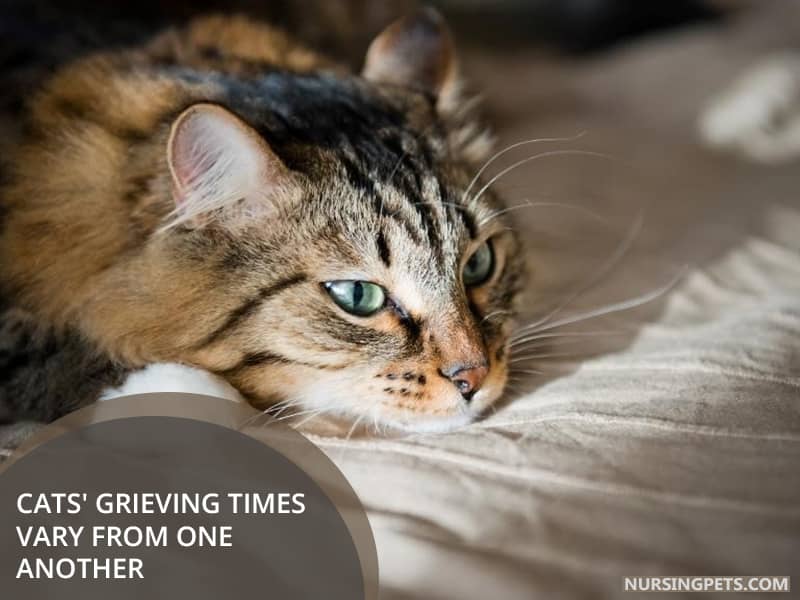
Some cats may go through a period of depression and lethargy for several weeks or even months. Others may seem to bounce back relatively quickly. There is no one “right” way for a cat to grieve and no set timeline.
It’s important to give your grieving cat plenty of love and attention. Be patient and understanding, and eventually, your cat will start to heal.
Do Cats Get Depressed When Their Owner Dies?
Cats can experience depression when a beloved owner dies. Cats are social creatures and form strong bonds with the people they live with. When a cat’s owner dies, the cat may become withdrawn, stop eating and grooming, and have trouble sleeping.
What Happens To Cats After Their Owner Dies?
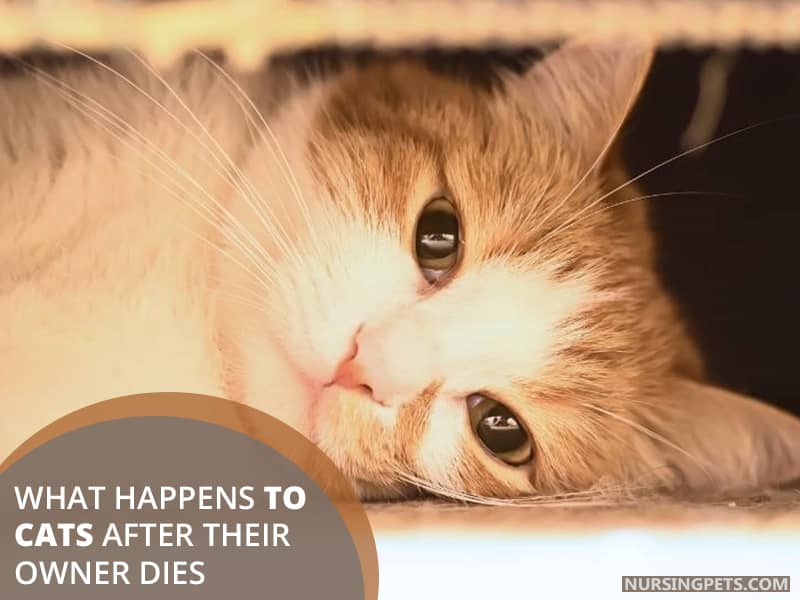
Losing a pet is never easy. But when a pet owner dies, it can be especially difficult for the cat. Cats are very attached to their owners and often view them as part of their family. When their owner dies, cats can become anxious and confused. They may also experience changes in their appetite and sleep patterns.
Do Cats Leave The Home If Their Owner Dies?
Cats do not typically leave home when their owner dies. Cats are often quite attached to their homes and owners and may even become depressed or anxious if forced to leave their homes.
While there are some exceptions, it is generally best to keep the cat at home if the owner’s death is imminent.
Do Cats Know When Their Owner Has Passed Away?
Cats are complex creatures with unique behaviors and expressions of grief. However, many people with a cat report that their feline companions seemed to know when their owner had died, even when they were not present at the time of death.
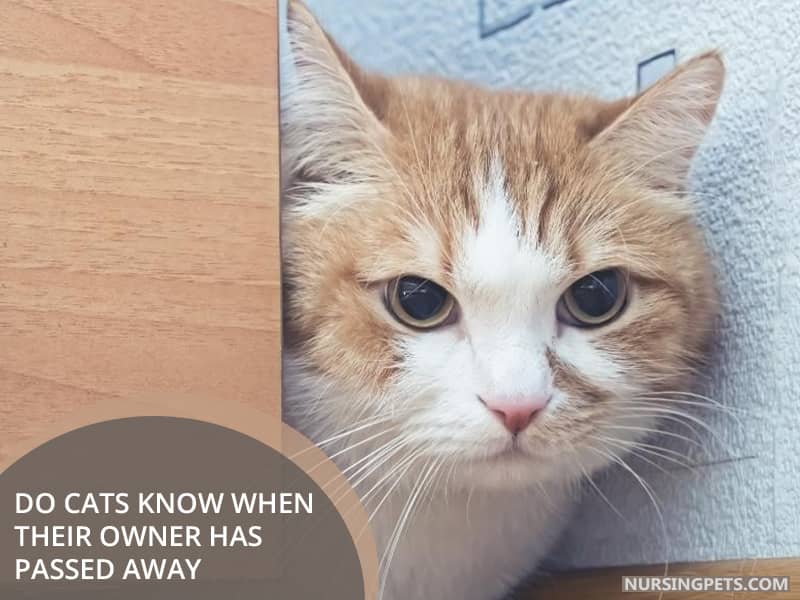
Some cats may show signs of distress or grief after their owner’s death, such as increased vocalization, lethargy, loss of appetite, or changes in sleeping patterns. Others may seem completely unaffected. There is no right or wrong way for a cat to grieve, and each individual will express their sorrow in their way.
Do Cats Meow When Grieving?
One of the most common signs of grief in cats is meowing. Cats typically meow when they want something, but a grieving cat may meow more than usual or meow in a different tone. She may also yowl or cry.
These vocalizations may be an attempt to communicate with her lost companion or to express her sadness.
How Do You Help A Grieving Cat?
When a cat experiences the loss of a companion, whether another cat, a dog, or a human family member, he or she grieves. Although it may be difficult to witness your cat going through such a tough time, there are things you can do to help him through the grieving process.
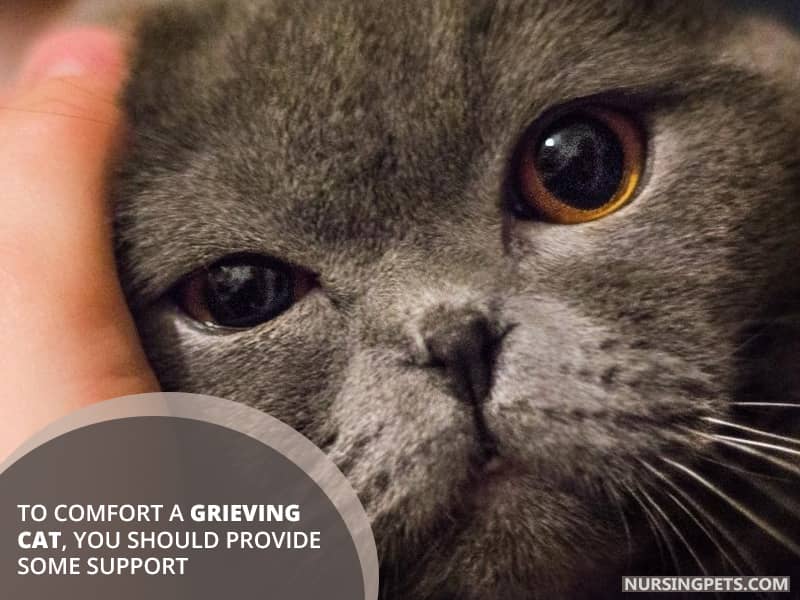
Here are a few tips:
- Allow your cat time to grieve. Just like humans, cats need time to process their feelings and come to terms with their loss. Don’t be tempted to get a new cat right away to cheer your grieving cat up—this will only confuse and overwhelm him.
- Create a calm environment. During this difficult time, your cat may appreciate a little extra peace. Try to keep noise and activity levels low in your home.
- Provide extra TLC. Grieving cats may need some extra attention and affection. Spend some extra time petting and cuddling your cat, and don’t be offended if he seems to want more space than usual—he’ll let you know when he’s ready for more close contact.
- Encourage a healthy appetite. It’s not unusual for grieving cats to lose their appetite, so it’s important to make sure your cat is eating enough. Try offering him small meals more often throughout the day, and offer a variety of foods to see what he’ll eat.
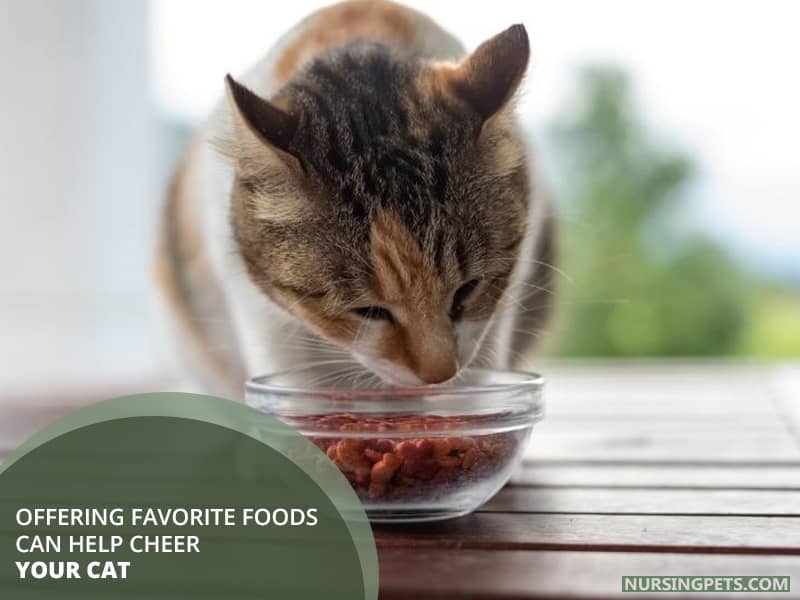
- Give him a place to hide. Some cats like to have a place to retreat to when they’re feeling sad or stressed. Provide a box or other small space where your cat can go to get away from it all.
- Consider seeking professional help. If your cat’s grief is severe and lasts for more than a few weeks, he may benefit from seeing a veterinary behaviorist or animal psychologist.
Verdict
Like humans, cats form strong bonds with their caregivers and can suffer from depression and anxiety when losing them. Give your cat time and space to adjust. Provide plenty of food, water, and litter, and offer plenty of love and attention when your cat is ready for it.
You may also want to consult with your veterinarian about possible medications. These professionals can help your cat work through his grief in a healthy way.
Image Source: Canva.com/photos

